What to Do When You Think Someone’s Wrong About Their Myers-Briggs® Personality Type
Have you ever been talking to someone, asked them what their personality type was, and then thought to yourself “that can’t be right!”
Believe me, you wouldn’t be the first.
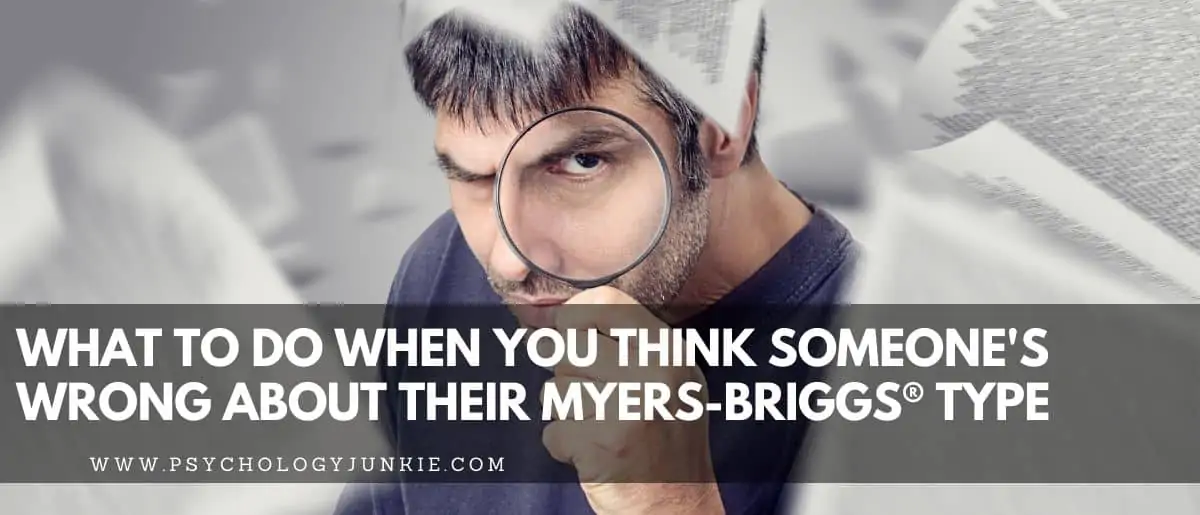
Your Myers-Briggs® personality type can show up in so many varied and nuanced ways that are unique to you as an individual. Thus when we meet someone who varies from our own experience of a particular type (or our own type) we can feel skeptical and shocked. “Wait….you don’t SEEM like an INTJ” we might be thinking. “INTJs don’t smile like that!”
Should you say something? Should you keep your mouth shut?
That’s what we’re going to be exploring in today’s article.
Table of contents
Estimated reading time: 7 minutes
Things to Remember About Typology
When it comes to typology, it’s important that we keep in mind that we are not only dealing with our own personalities on a surface level; but also our personalities on an unconscious level. Even moreso, it’s vital that we keep this in mind while we are discussing typology with others.
Learning about typology is fascinating because it helps us understand ourselves and others so much better. It opens up endless possibilities in the social sphere. Some of us use typology as a tool for self growth, to get along with our peers, or simply because we’re curious. If you stick around long enough to make acquaintances and friends who are as passionate about typology as you are, you’re bound to come across the term “mistype.”
What Is a Mistype?
When someone is said to have mistyped themselves, this means that the person in question has typed themselves incorrectly, either through a questionnaire, consultation, or self-discovery. For example, I once thought I was an INFJ. However, one of my friends thought I was an ENFJ Personality type. Therefore, my friend thought I mistyped myself.
It’s pretty normal to have ideas about someone being a type other than what they claim. Once people get deeper into their knowledge of type, they often start to play at guessing other people’s types. Then it’s easy to get shocked when people don’t match up to the types you think they are! For example, you might be speaking to someone who claims they’re an ENFP, but you feel like they’re exhibiting cognitive functions more in line with an ESFP. You might be telling yourself, “all I’m seeing is Extraverted Sensation, not Extraverted Intuition!”
These kinds of ideas are normal to have. However, it becomes an emotional and psychological risk if you begin voicing your beliefs about others being mistyped. It can be especially harmful when groups of people start getting together to discuss people they believe are mistyped.
The Dangers of Calling Someone Mistyped
When you enter into the realm of typology communities, you’re dealing with people who have various unhealed traumas, ego attachments, and other elements of the psyche you have no awareness of. Some people are not ready to face certain parts of themselves and because of this, they may feel attached to specific personality types. Others may genuinely become annoyed because calling them a mistype is like telling them they have no idea about their own identity, and you “know better.” There are dozens of other reasons why people get annoyed, offended, or confused by being called out as a mistype.
I’ve seen first-hand where amazing friendships were lost and enemies gained because someone called another a mistype. In my early days of typology study, I made the mistake of telling someone I got along with very well that I thought they were an ENFP. Minutes later, I was blocked from ever contacting them again. At first I didn’t get why they reacted so strongly, especially because I couldn’t fathom at the time why someone would take it so seriously like that. I get it now.
You might think that someone blocking you or getting angry at you for calling them a mistype is a bit extreme but you never know what your peers are dealing with. If someone is having an extreme reaction to typology in this way, it’s more than likely not the personality type they’ve attached themselves to nor typology itself. Instead, there may be something in the specific personality type they chose that soothes their mind, whether they are aware of it or not.
This is another reason why it’s best not to call someone out as a mistype. We never know what someone has gone through in their lives that could end up causing a negative reaction. Someone might be struggling in a job they feel isn’t suited for them, someone might be going through schooling that requires them to use non-preferred preferences (e.g. maybe they’re a sensor, but they have to work with intuitives, so they have to exhibit more intuitive tendencies). If you look at your own life, you can probably see experiences that have caused you to react in uncharacteristic ways as well. When you’re at work, or dealing with a variety of different individuals, you may put on different “hats” or personality masks in order to get by. This is normal!
Aside from our close friends and family, a lot of us don’t know each other deeply enough to know one another’s triggers. You may call someone a mistype and later find out that one of their triggers was being made to feel as though they don’t know who they are. Perhaps they already struggle with identity issues. Perhaps they are struggling with trauma that has made it difficult for them to know who they really are.
The Ethics of Typing People
The temptation to type one another and even celebrities is understandable. It is one thing to type celebrities casually, as a way to have fun and experiment with our new typology knowledge. Chances are, they’re never going to find such a discussion. However, there’s a lot more that goes on in the lives of everyone that we have no idea about, including celebrities.
When we attempt to type individuals we don’t know, without their consent (which I’ve also been guilty of), we run the risk of mistyping people and potentially causing them psychological pain. In the beginning of my typology journey, I was typing people with a very limited knowledge of the cognitive functions and based on what I’ve seen then do without any story or context behind that. The more I learned about typology and the more information I gathered about these people, the more I realized I had mistyped them.
This is why it’s good to speak directly to people and get to know them. Some people don’t mind being typed because they find it fascinating while others might find it a bit controlling and intrusive. You never know which type of person you’re dealing with until they react!
The other side of the coin is that we can’t be so sure we’re not mistyping ourselves! Since there is no official authority to tell us whether we are correct or incorrect in our understanding of typology and we have to come to some collective understanding and agreement; we run the risk of mistyping ourselves. I still battle some childhood traumas that have made me mistype myself plenty of times and so now I’m extra cautious when I talk about type.
With that said, we are always learning new things and we all go through different stages of life. If you are like me and like observing yourself from the outside, then you are constantly discovering new things about yourself that you hadn’t known before. Mistyping yourself isn’t such a big deal. It is a journey after all…a journey into the self. However, to type someone without consent can be dangerous (and rude) because we don’t know their life story.
Typology can be a wonderful tool when we study it and not only apply it to ourselves but also our relationships with our peers. We are tough individuals but we are also fragile beings who sometimes are unaware of hidden biases and traumas. Unless you are a certified typology practitioner (who was paid to type someone), calling out someone as a mistype, especially in a derogatory way, helps nobody.
Trolling others by publicly calling them out as mistypes, making memes about them being mistypes or using a mistype as an insult is especially uncalled for. I’ve seen some people even use specific types as insults, such as calling someone an INFP because they get emotional or calling someone a “fake” INFJ, claiming that they are instead an INFP as if INFP were a derogatory type.
If you have the urge to call someone a mistype, ask yourself these things:
- Have I understood the cognitive functions yet?
- Do I know much about that person’s life and background?
- What is their reasoning behind what they do?
- Does it affect me if this person isn’t the type they think they are?
- Is it possible that I am the one who is mistyped?
- What am I hoping to accomplish by calling people out for being possibly mistyped?
If you believe someone is mistyped, let them at least make the choice to come to you about what they think their type is. Let that be their choice. Let their typology journey be their individual journey, uninterrupted.
What Are Your Thoughts?
Did you enjoy this article? Do you have any thoughts or insights to add? Let us know in the comments!
Find out more about your personality type in our eBooks, Discovering You: Unlocking the Power of Personality Type, The INFJ – Understanding the Mystic, The INTJ – Understanding the Strategist, and The INFP – Understanding the Dreamer. You can also connect with me via Facebook, Instagram, or Twitter!
Other Articles You Might Enjoy:
The Myers-Briggs® Personality Type of Your Ideal Romantic Partner
Things You’d Never Dream of Doing, Based On Your Myers-Briggs® Personality Type
The Surprising Things You Notice, Based On Your Myers-Briggs Personality Type
About the Author:
Alena Sublime is a blogger who enjoys bringing topics she feels are being overlooked , into the spotlight of society. She is not only a Typology enthusiast but she is also a Mental Health Advocate and blogger. As someone who battles mental health issues herself, her hope is to provide fresh perspectives to Typology discussions.
Alena is a contributer on the mental health website www.TheMighty.com [1]. You can check her mental health articles out here: https://themighty.com/u/borderli0ness/


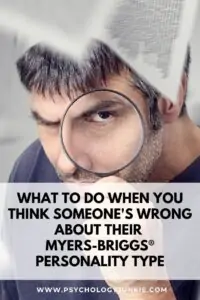

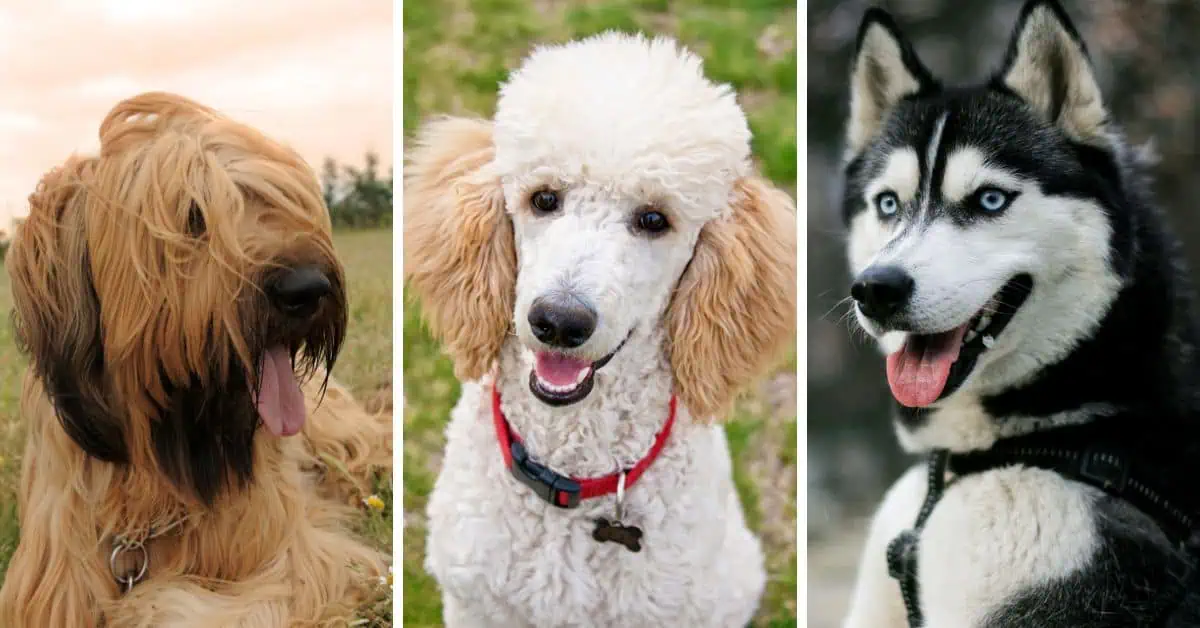

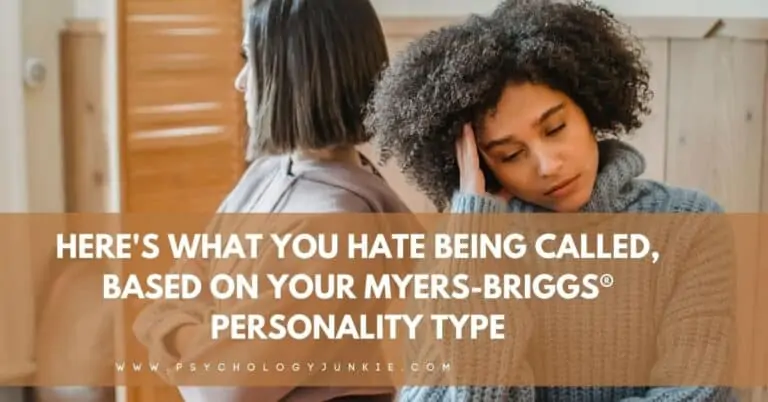
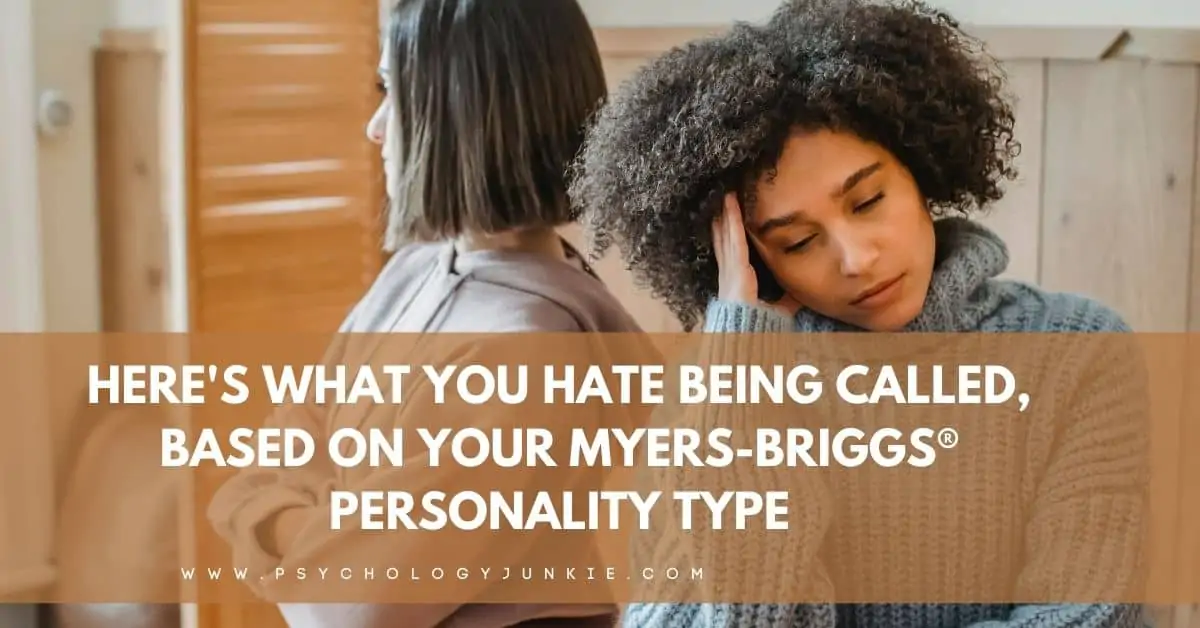




Thank you for this article! As someone who came to typology after/because of experiencing trauma, I really appreciate what you wrote (and haven’t seen those issues addressed this way before). Despite several years of studying MBTI and some other systems (and working for a few months recently with an MBTI certified coach), I still struggle to see and present myself accurately (especially “pre-“ and “post-trauma” me, as that has changed and still changes a lot!). Even though our cognitive functions theoretically don’t change, I think trauma and also journeys of healing seem to muddle things (sometimes in a good way!). I never could’ve understood that before my own experience, or the way that calling out a possible mistype could be hurtful to someone’s psyche; thank you for raising this issue and sharing it here!
heyy! So I always always used to test as an ENFP and really related to the description… recently I have tested as ESFP and always have done since about two or three years ago. I half relate and half don’t but just tested again and it says ISFP. What is going on haha! Do you think I just misinterpret the test questions haha
Being INTP, I tend to say it if I think someone is mistyped, because for me, it goes against the accuracy I need. ^^ Also the MBTI is a system to help me understand people.. Ti helping Fe.. How better can it get.. Usually people get mistyped because they don’t know the MBTI rather than themselves, at least around me. Recently my cousin told me “I took the test again to see if I’ve evolved, now I’m INFP” (he’s ENFP). I told him, wait a minute x)
I sent him your articles about healthy and unhealthy ENFP, what to focus on to grow. He’s my cousin, I know he’s an extrovert, a very cliché one who always have to be surrounded by people. To tease him, I told him “as an extrovert you didn’t have the patience to learn about the MBTI, you went for the fast way to take the test a second time”. He read about the ENFP again and acknowledged it suited him much better. Also he knows me, I’m also his cousin, he knows I’m straightforward.
I’ve also been mistyped by communities when I first started learning about the MBTI and the enneagram. I’d ask, what does an INTP 8 looks like? And I’d get answers like, they don’t exist. Some would say I was ENTP, some would say I was a CP 6, not knowing me at all. I got really really mad indeed. But for the lack of care for accuracy. You can’t tell that to someone not knowing them, also when it comes to human and psychology, everything can happen.
And to be honest, even if INTP 8 seems strange, I’m quite cliché of both, so I have no doubts. Ti is my life, before the MBTI I had no clue some people could NOT CARE about logic. For me it was the basis of life. I couldn’t picture people not caring about the basis of life. I’m also clearly introverted. If I spend 24 hours with people without the possibility to spend time alone, I’ll turn insane and will have to run away or feel trapped. It happened once, a long birthday party with tents, it was tough. My Ne is quite random, I guess it shows when I speak. My INTJ partner finds it hard to follow me when I jump to something else. Without connection, he believes.. Si about nostalgia, and Fe sucking.
About 8, the idea of feeling controlled or trapped is… my skin wants to leave my body. Recently in a third world country I went to the bathroom and it was locked from inside by a woman who would stay inside. The idea I couldn’t leave by myself made me almost claustrophobic. Waiting for someone at a train station, not being able to go somewhere by myself, makes me very angry, because I have to count on them and they’re “letting me down” and abusing their power, somehow, by being late and forcing me to wait, helpless. I hate that. Also when I’m drunk, the body is the last to stay. The day after, I’ll forget what I’ve done but I was still going around.
So I’m sure about my types. INTP 8w7 874 SX/SP. I’ve got all of this after one test, and even after reading a lot about each aspect, it remained the same.
But when I’m called a CP 6, that’s my father, I know how different that / he is, and since I’m not the biggest fan of the guy, yeah, I hate being called a 6..
The types are interesting if they help. If they’re just about judging, it’s better not to use them.